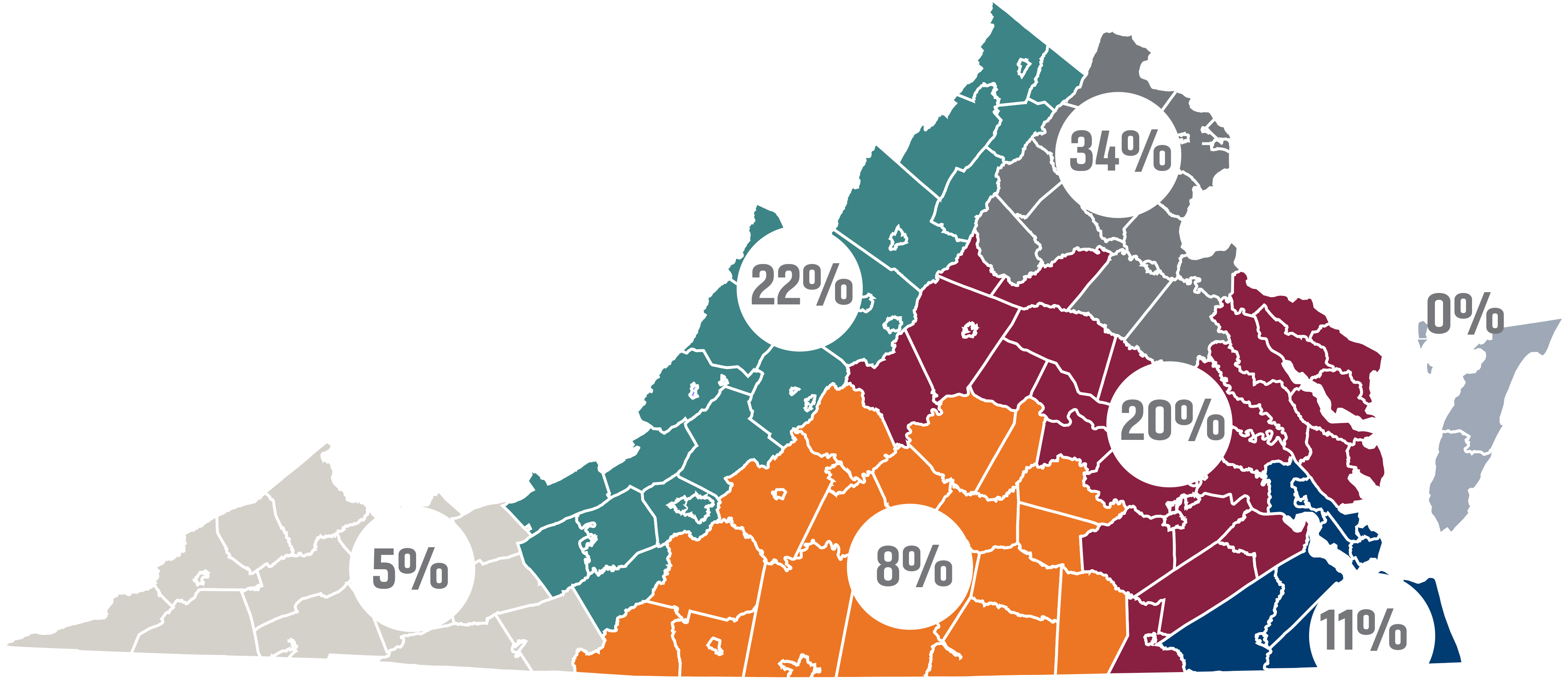A message from the head of the Department of Forest Resources and Environmental Conservation
November 15, 2018
Jay Sullivan

The study of forestry at Virginia Tech began nearly 100 years ago. Today, we are a recognized national leader in education, research, and outreach efforts that are rooted in one our most precious resources on the planet: forests.
Forests cover two-thirds of Virginia and nearly one-third of the Earth’s land surface, and forested ecosystems represent a critical element of environmental health and human well-being worldwide. They play an important role in sustaining the Earth’s climate, are fundamental in providing clean water, support floral and faunal populations, and comprise critical habitats for threatened and endangered species. Healthy forests also provide necessary products ranging from lumber and fiber to commercial biofuels that are essential to economies around the world.
In our department, we have many opportunities to build on this extraordinary program and, more importantly, to help our students acquire the professional skills and ethics needed to conserve and manage forested ecosystems. This work is complex and involves boots-on-the-ground field effort, remote sensing and data analytics, laboratory science, and planning and policy analysis, as well as assessments of human needs, impacts, and motivations.
To develop leaders for meeting those challenges, we offer a bachelor’s degree in forest resources and environmental conservation, with majors in forestry, environmental resources management, natural resources conservation, and environmental informatics. Our interdisciplinary bachelor’s degree in water: resources, policy, and management is unique in the nation and engages faculty across the campus. Our master’s and doctoral degrees encompass all of these areas and support a vibrant student research program.
Ours is one of the largest programs in North America, and we are committed to providing the highest quality education in forestry and environmental resources management. We carry the legacy for future generations and must ensure that our forests and environment are passed on in an even better condition than we received them.
Did you know?
- Our forestry program has been ranked No. 1 in the country for the second year in a row by College Factual.
- The 1,353-acre Fishburn Forest, which is located only 10 minutes from campus, provides space for teaching and research activities.
- All the three of the options within the forestry major — forest operations and business, forest resources management, and urban forestry — are accredited by the Society of American Foresters, the national scientific and educational organization representing the forestry profession in the U.S.
- Our new water degree — water: resources, policy, and management — is the most interdisciplinary such program offered anywhere in the U.S. and is the first of its kind in Virginia. The broad curriculum is built on a collaborative partnership that includes seven departments and four other colleges at Virginia Tech.
- Students in our new environmental informatics program learn about the application of big data, geospatial technology, and remote sensing to a variety of fields related to the study and management of natural resources: land use, soil, water, fish and wildlife, climate, etc.
- Faculty in the department are leading a multi-university effort called Urban Forestry 2020, which examines where the jobs are, what students think about a career in urban forestry, and the challenges of an urban forestry career.
- Students who take Wildland Fire Ecology and Management can train and qualify to serve on Virginia Tech’s Wildland Fire Crew, which works with state and federal agencies to suppress wildfires or manage prescribed burns.
- Faculty in the department are leading research into applying probabilistic forecasting, such as is used in weather predictions, to both water quality and forest productivity.
Forest Resources and Environmental Conservation
by the numbers
2018 Fall Enrollment
326 Undergraduates

Enrollment by Major

10% Environmental Informatics
29% Environmental Resources Management
28% Forestry
17% Natural Resources Conservation
17% Water: Resources, Policy, and Management
In-state Student Residency by Region (83% of Total Students)

FreshmAn Admission
Applied
Offered
Enrolled
Offered Rate
Yield
Full-Time Faculty
26 Tenure | Tenure-Track
1 Instructional | Other
17 Scientists | Postdocs
44 TOTAL





